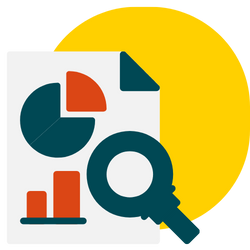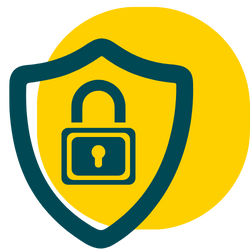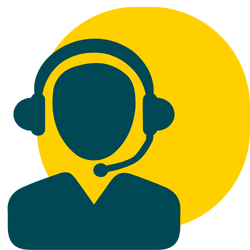Choose a Podcast Hosting Service: Tips for selection and setup
Most new podcasters have heard about podcast hosting, but what is it exactly? Do you need to spend the money on a service, or can you be your own host and save the money?
Let's look at some of these frequently asked questions so you can make the best decision for you.
Why you need a podcast hosting service
Podcast hosting services also provide other valuable features like:
- Tracking analytics. Hosting platforms like Podigee track your show's downloads and listener demographics. It would be very challenging to get access to this data without a hosting service doing the heavy lifting for you.
- Helps with easy distribution. Having a podcast host makes it easy to submit to all the major directories. Without one, you'd have to submit to each manually.
- Gives you ample storage and bandwidth for audio files. Podcasting hosting services have high-capacity servers that can handle large amounts of audio data, which would be difficult for podcasters to manage on their own.
Moreover, hosting your own podcast can also be expensive; hosting services often offer affordable plans that cater to different needs and budgets, making it a more cost-effective option compared to hosting on your own.
What is a podcast RSS feed?
A podcast RSS feed is a way to distribute audio files, such as podcasts, over the internet. It stands for Really Simple Syndication (RSS), and it allows users to subscribe to a particular podcast series without having to visit the website every time new content is available.
The RSS feed contains metadata about each episode, including the title, description, and link to download or stream the audio file. This allows users to easily access and listen to their favorite podcasts on any device that supports RSS feeds, such as podcasting apps or web browsers.
What to look for in a podcast hosting service:

Solid Analytics
Podcast analytics are like a report card for your content. They give you valuable listener insights on things like how many people are listening, which episodes are the most popular, and where your listeners are tuning in from.
This information is super valuable because it shows you what your audience likes and doesn't like, so you can make more tailored content.
And, if you're looking to monetize with brands and sponsors, they'll want to see these numbers to decide whether or not you're podcast is a good fit for them.

Intuitive and Easy to Use
It's also important to consider how user-friendly and intuitive a podcast host's platform is. Do they make it easy for you to upload, manage, and distribute your content, or is it all a little confusing?
Having an easy-to-use podcast hosting service allows you to focus on creating quality content rather than getting bogged down by technical difficulties.
Fortunately, many podcast hosting services give users a free trial so you can see if it's a fit for you.
%20(250%20%C3%97%20250%20px).png)
Fast Publishing and Time-Saving Features
Fast publishing and features include things like the ability to schedule releases in advance or get PDF reports of your analytics are highly valuable– especially for busy business owners and solopreneurs.
With the ability to schedule episodes ahead of time, you can set your podcast to automatically release new content while you focus on other business tasks. This feature can save you time and ensure your podcast stays consistent and professional, just like scheduling automated business emails. It's a convenient way to balance both your business and podcasting responsibilities efficiently.

Content Ownership and Secure Data
Content ownership means that you, as the podcaster, keep control over all your episodes. It's like writing a book–you wouldn't want your publisher to suddenly say they own your story, right?
When your podcast hosting provider prioritizes secure data, it means they are keeping this information safe and secure, which is really important for maintaining trust with your audience and protecting your work.

Podcast Monetization Capabilities
Are you looking to partner with brands to monetize your podcast? Many hosting platforms offer a range of features designed to maximize revenue opportunities for content creators, but not all. If you're interested in this feature, look for things like:
- Dynamic ad insertion
- A sponsorship marketplace
- Premium content options
- Donation tools
- Affiliate marketing integration
- Merchandise integration

Responsive Customer Support
Having access to the right help when you need it is crucial–especially when you're just starting out. Because the chances are a technical issue will come up at some point, especially early in your launch, and you want to have a responsive team to support you when it does.
Quality customer support means you can resolve issues quickly and get back to creating and sharing your content without long delays or unnecessary stress. It can be the difference between wanting to pull out your hair, and easily resolving obstacles as they arise.
Host Your Podcast with Podigee
Podigee is an excellent option for small-scale business owners, solopreneurs, and independent creators looking to grow their brands and get their message to the world.
Want to try it out before committing? Sign up for a free 14-day trial to see what you think! No credit card required.
With Podigee, you can efficiently manage your podcast thanks to features like easy uploading and scheduling, which are perfect for a tight schedule. You'll also have access to detailed analytics, giving you actionable insights into what's working and what could use some improvement.
In the steps below, we walk through how to add your podcast to your dashboard once you create an account.

Step #1. Create new podcast
After signing up, click on the Create new podcast button. Once you get there, you will find a helpful podcast creation wizard that will guide you step by step through the process.
The key information you need to provide is the podcast title, artwork, and a description of your show.

Step #2. Add your podcast cover art
Good artwork is a key part of attracting new listeners. We recommend working with a tool like Canva, which has thousands of templates to choose from. You can also hire a graphic designer on a platform like Fiverr Pro.
Resource: How do I create a podcast cover?
Step #3. Upload your first podcast episode
The next step is to create your first episode and upload the recorded audio file. While you are uploading the audio, you can fill in a title, description, and show notes (they show up when playing your episode and provide additional information like helpful links).
Once done uploading and filling in the episode information, you can either publish immediately or schedule publication for later.
Powerful features in every Podigee account
Podcast Player
Having the ability to embed the podcast player on any existing website is like being able to place your own mini-radio station on different sites, making it super easy for more people to find and listen to your podcast right where they are.
A good podcast player makes it easy for people to play, pause, skip, or even share your podcast. It's important that the player works well and looks good, so listeners have a great experience.
Podcast Website
A hosted website for your podcast serves as a home base where your listeners can find all your episodes, learn more about your podcast, and maybe even start following you and your show.
It's also great for your podcast's SEO; when new listeners search your podcast's topic online, having a website increases the chances they'll find your content. Think of it as your podcast's personal space on the web, where everything about it is neatly organized and easy for people to find and enjoy.
AI-Generated Transcripts
Transcripts are important for a podcast because they are like a written version of each episode. This makes your podcast more accessible to more people.
Transcripts can also help with finding specific parts of an episode and are great for SEO, which means your podcast can show up in Google searches more easily.
If you host your podcast with Podigee, you get AI transcripts automatically generated each time you upload a new episode–saving you valuable time.
PDF Reports Sent to Your Mailbox
Every week, we send you an email that breaks down how many people listened to your episodes, which episodes are most popular, and other useful information.
These reports contain neatly packaged data sent straight to your inbox so you can easily keep track of your podcast's progress and make decisions on how to make it even better–without having to dig through a bunch of analytics on your own.
You can learn more about Features & Pricing for more information on what each plan offers!
How To Start a Podcast: The Definitive Guide
- Part 1: Create a Captivating Podcast Concept
- Part 2: Make Your Editorial Calendar
- Part 3: Choose the Right Podcast Equipment for You
- Part 4: Brand Your Content: Find the perfect title, music, and artwork
- Part 5: Prepare the Perfect Podcast Recording Studio
- Part 6: Record Your First Episode: Scripting, style, and storytelling
- Part 7: Streamline Your Recording & Editing Workflow
- Part 8: Choose a Podcast Hosting Service: Tips for selection and setup
- Part 9: Maximize your Podcast Reach: Publish to Apple Podcasts, Spotify, Amazon, and other platforms
- Part 10: Learn Powerful Podcast Promotion Strategies
Join the Podcast Pioneers Newsletter & Community
Podcast Pioneers is an expert-led instructional hub for small-scale business owners and creators exploring podcasting. You'll get access to tons of useful and helpful learning materials, tutorials, and videos–all for free!
We will never send you spam or sell your data. Ever.

